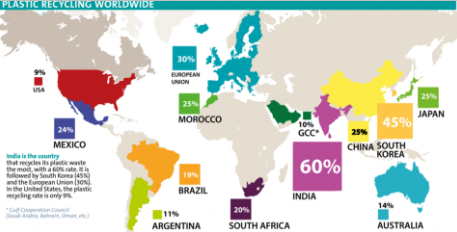It is already urgent to move towards circular economies, mainly, if we refer to plastic materials. For its part, the socioeconomic model of produce-consume-dispose is in critical stages in Chile.
The planet is saturated if we refer to the use of natural resources and waste contamination, mainly plastic, is causing irreversible damage to the ecosystem.

In April 2019, our country began to take more concrete actions regarding the situation. How? Subscribing to the Chilean Plastics Pact (CPC).
Led by Fundación Chile and the Ministry of the Environment, the initiative is part of the Global Network of Pacts for Plastics launched in 2018 by the Ellen MacArthur Foundation in the UK. Its objective? To rethink the future of plastics by bringing together all the actors in the value chain, companies, the public sector and NGOs.
What problem do we face?
The following statistics provided by Fundación Chile make it possible to demonstrate relevant characteristics on the use and management of the plastic that is generated in Chile and the world.

As pioneers, at the LATAM level, in terms of sustainability and recycling, Chile understands that it is still far from the figures of European countries such as Switzerland, Sweden, Austria, Germany, among others, who reach practically 100% thanks to the Strong sanctions from the Government, for those who do not comply with this rule due to its mandatory nature.
The planet is saturated if we refer to the use of natural resources and contamination by waste, mainly plastic, is causing irreversible damage to the ecosystem.

Source: World Bank – Pending Task in Latin America with the recycling of garbage.

The main mission, identified by the founders and participants of this initiative, is to work jointly and articulately, generating collaboration and innovation to propose new ways of manufacturing, using, reusing and recycling plastics, in order to aspire that efforts do not be in vain Added to this is the urgency to address and prevent environmental issues of all kinds, however, the Pact invites us to take advantage of the enormous opportunity to create value that can be generated.
Main commitments:

Chile is the third country to implement the Plastics Pact, along with the United Kingdom and France, as well as being the first developing LATAM country to join this Global Network.
With this, our territory will seek to strongly manifest its determination to collaboratively lead the change in production models and, with it, the impacts associated with our environment.
